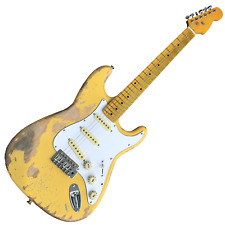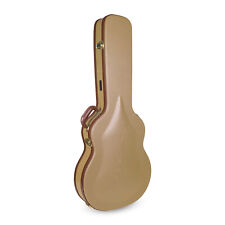|
Review Splinter Group at Jazz Cafe Concert Evening Standard, September 3, 2002 HEADLINE: Albatross flies again as Green returns to the blues;
POP BYLINE: Chris Mugan BODY:
Peter Green and the Splinter Group, Jazz Cafe, NW1 RARELY has a song title been so apt, for Albatross remains the big bird hung round Peter Green's neck. That classic instrumental gave his band Fleetwood Mac a number one hit, but overshadowed Green's career as a virtuoso blues guitarist to rival Eric Clapton. Addled by drugs, it is no wonder he left the band to dig graves. Green went on to release some missable solo records and avoided the stage for 20 years, with no adequate explanation as to why he stayed away for so long. Last night, a black bandana hid his forehead and forced back a shock of long, grey curls, with only a dim memory left of the lean, black-haired Sixties star. Even so, Green's better known numbers dominated the Splinter Group's set. A perfunctory, yet still startling, Albatross received a rapturous reception, just like an epic Black Magic Woman, the track made famous by Santana's Latin rock version. From the start, though, Green steered the crowd away from the Mac's spacehead blues. Rather, he wanted to exhume the songs that introduced him to the genre. With a voice that sounded like it had swallowed a dusty Mississippi track, Green conjured up the Delta ghosts of Elmore James and Willie Dixon, but, above all, the original tortured troubadour Robert Johnson. When Green hit the right note, his unmatched fluidity still raised goose bumps. The star of the show played a mean harmonica and showed the limits of slide guitar to today's more diffident practitioners (That includes you, Coldplay). Most times, though, Green looked slow-witted. His hands ran up and down the fretboard looking in vain for purchase while the band filled in. Not that the Splinter Group were just a backing band. Three of the five people on stage had written songs to keep the set fresh. Most of them Green laid waste, apart from bassist Pete Stroud's yearning Real World. Such cracks in the set made for a pleasingly intimate feel, a million miles away from Clapton's regular stints at the Albert Hall. Green's prolonged stay in the cold meant his style had been preserved in aspic, and that was no bad thing.
|









